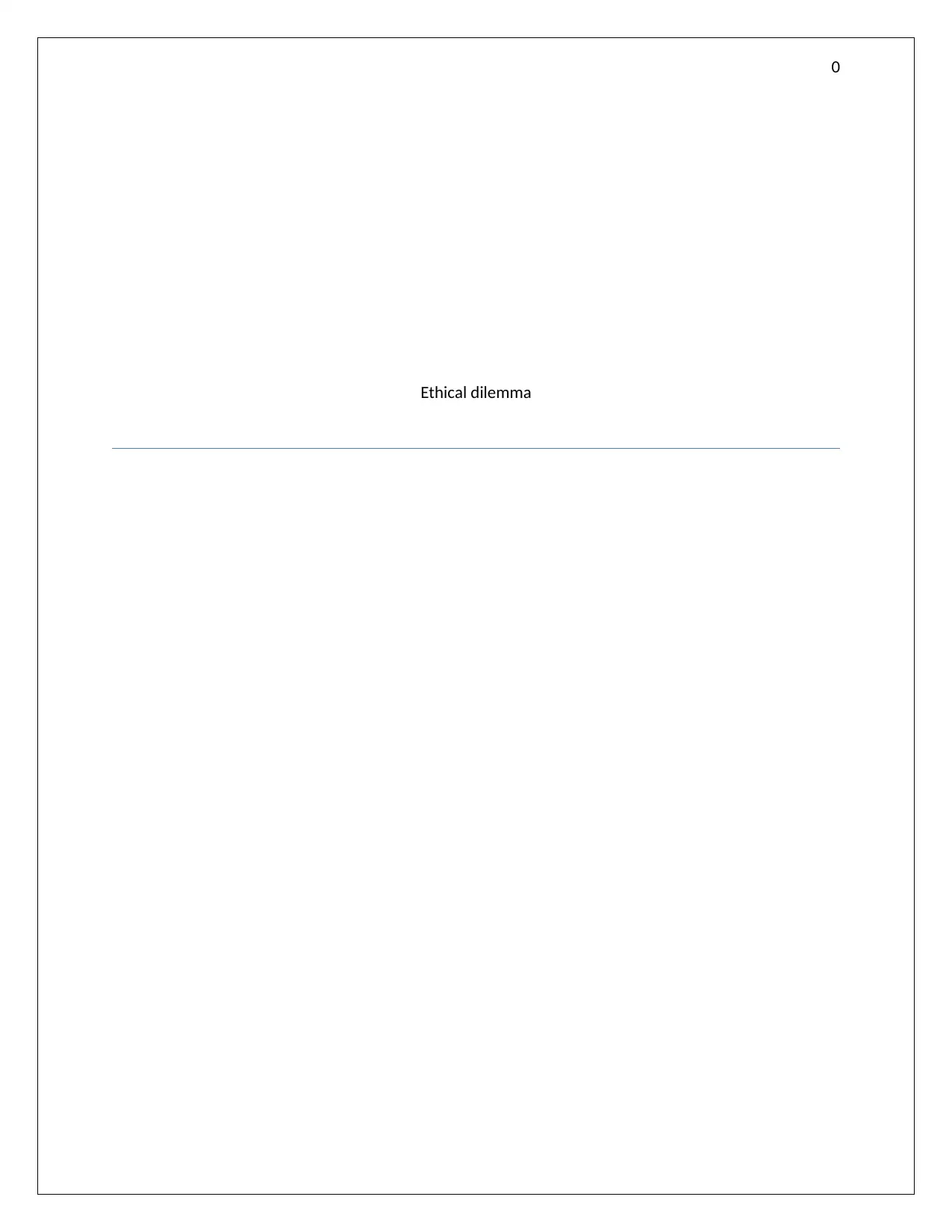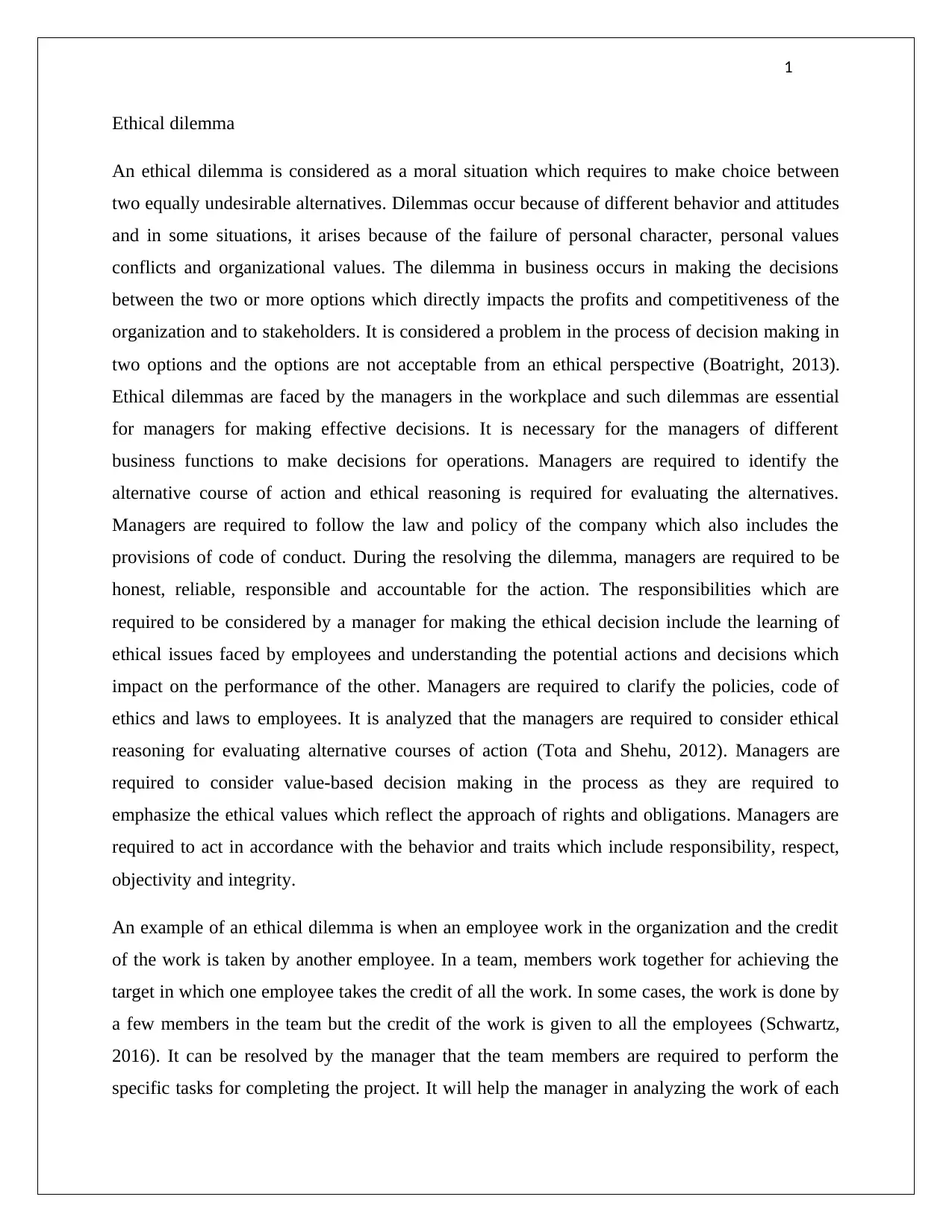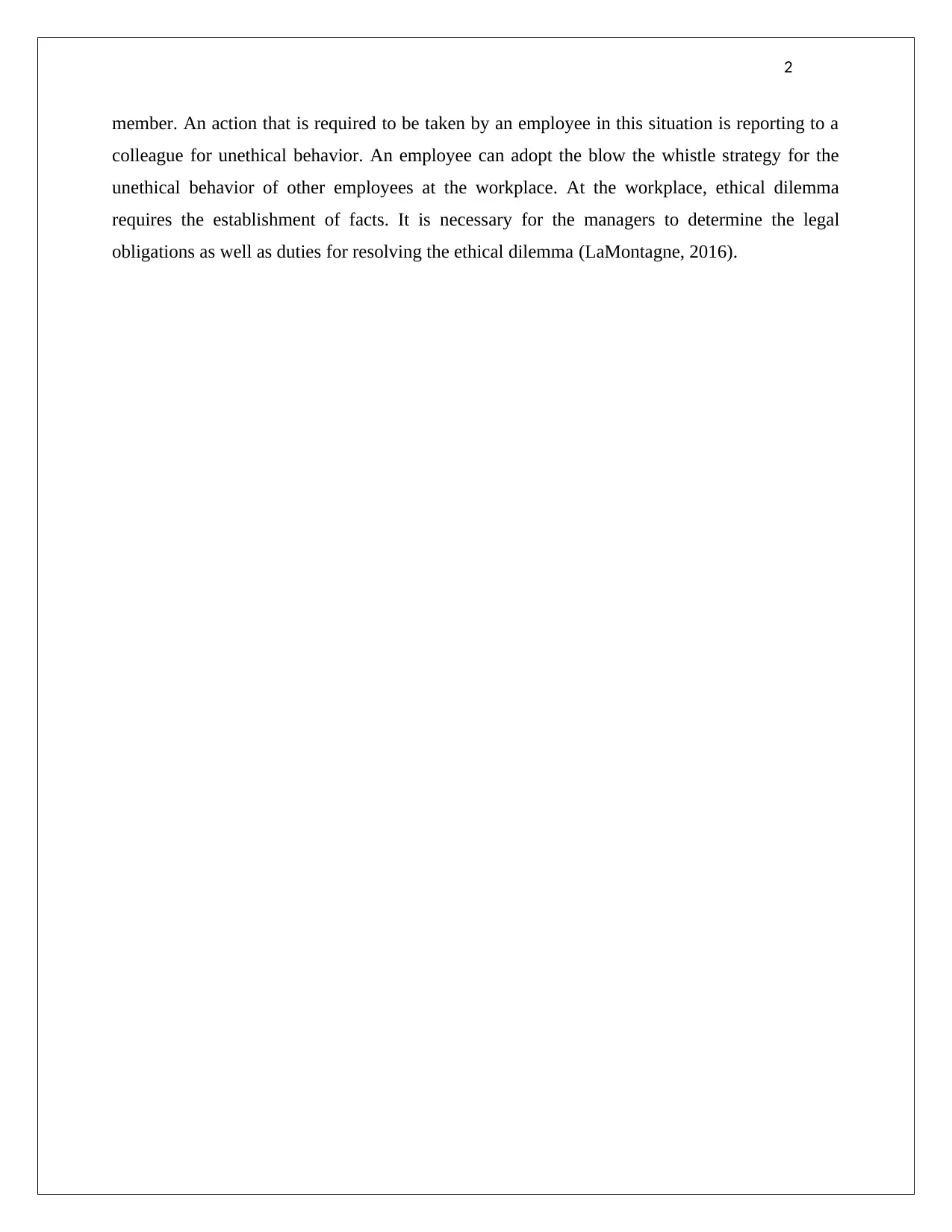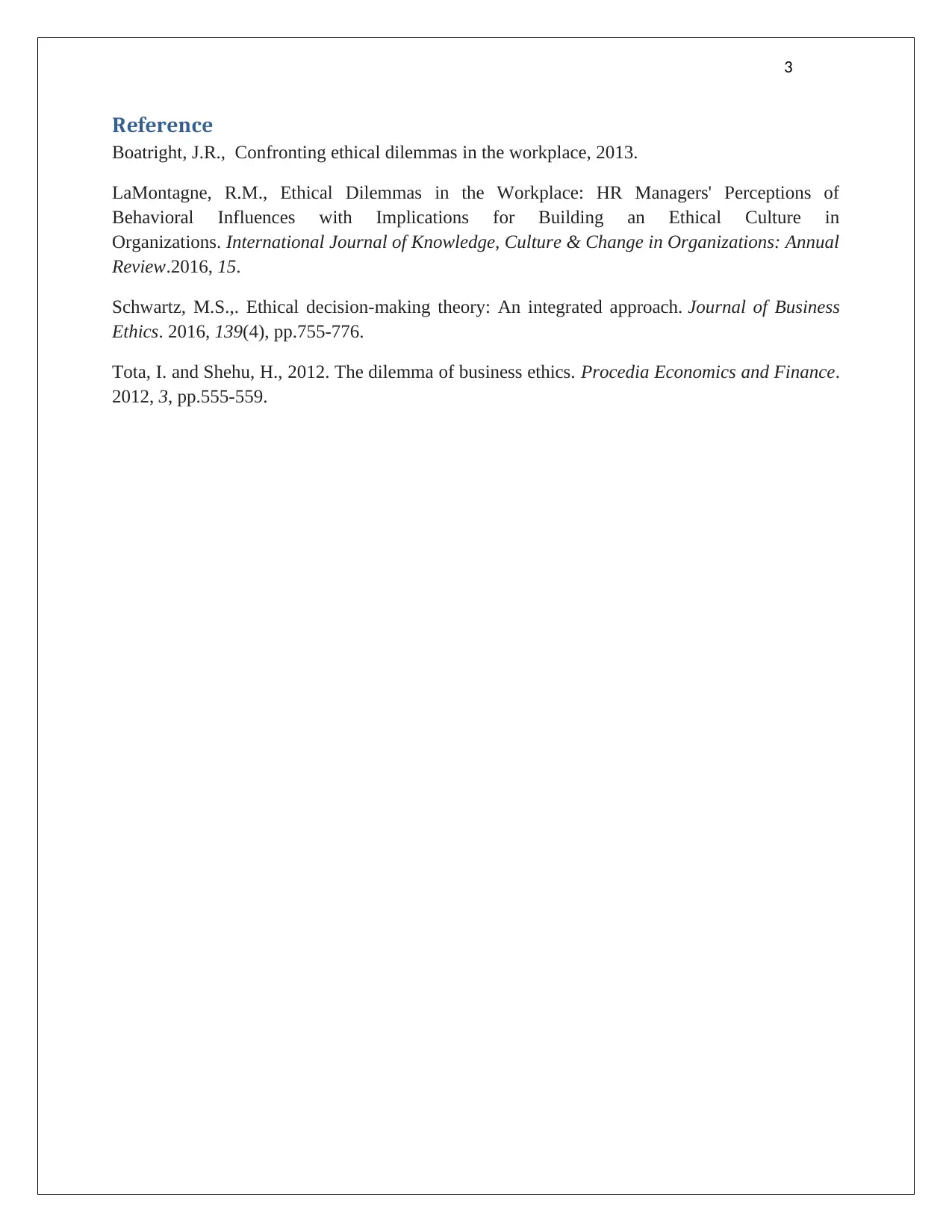Ethical Dilemma Analysis: Leadership and Business Ethics Case Study
VerifiedAdded on 2022/09/09
|4
|661
|7
Case Study
AI Summary
This case study examines ethical dilemmas in the workplace, focusing on the challenges faced by managers in making ethical decisions. It explores the nature of ethical dilemmas, where choices involve conflicting values and potential impacts on business outcomes and stakeholders. The case study emphasizes the importance of ethical reasoning, adherence to company policies, and the role of managers in fostering an ethical environment. It highlights the need for managers to understand ethical issues, clarify expectations, and consider alternative courses of action. An example of an ethical dilemma is presented, involving credit for work, and suggests solutions for resolving such issues. The study also references relevant literature on business ethics and decision-making, providing a comprehensive overview of the subject.
1 out of 4











![[object Object]](/_next/static/media/star-bottom.7253800d.svg)